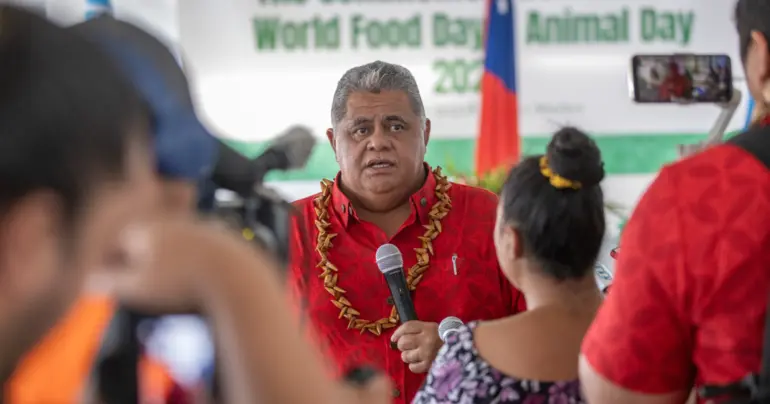There is no place for parallel court systems
In Greek mythology, one of the labours of Hercules or Heracles was to slay the many-headed snake Hydra. The problem with this labour was that each time one of Hydra’s heads was cut off, one or two grew in its place.
Similarly, that is the problem with the two-headed judiciary which was created in 2020. Each time a problem is solved, another or two take its place. As we are seeing with the Afega and Leauvaa cases. According to the interpretation of the law, the Land and Titles Court is a stand-alone and autonomous court with the Supreme Court having no powers over it after 2020.
However, this is still to be determined as there is an application to see if the Supreme Court has powers over the LTC when it comes to matters affecting the Constitution. While a determination is being made, matters such as the Leauvaa case and others would most likely end up in a similar row.
The LTC has passed orders that Afega have legal ownership of the disputed land where more than 100 families are residing in Leauvaa. Afega started clearing land and on Wednesday, the Supreme Court issued interim orders for Afega to stop all work. Since both courts are parallel, which one order supersedes the other?
This creates a highly volatile situation in Leauvaa and could easily turn violent. The other question that arises is which order would the law enforcement agency adhere to since both are binding in law.
Under the current system, decisions made by the LTC can only be appealed in the non-existent Land and Titles Court of Appeal and Review, for which to exist, some more amendments would have to be made. It sure is taking a whole lot of time because the LTC was set up in 2020 and four years down the line, there is no means of appealing its decision.
In 2020, the government was warned about the repercussions of the two-headed judiciary. The government was warned that the proposed amendments undermined judicial independence and the fundamental separation of powers that are vital to the rule of law.
They were told that by placing the LTC outside of the scrutiny and supervisory jurisdiction of Samoa’s Supreme Court would create two parallel and potentially competing court systems within Samoa’s legal framework. That is exactly what has happened.
The government was warned that this move would adversely affect the rule of law, the position of the Chief Justice and the supervisory jurisdiction in the hierarchy of courts in Samoa. Those warnings are coming true.
In January of last year, the current government backtracked from its election promise to repeal the LTC Act and instead said they would fill in the gaps in the law to make it work. Sadly, that has not happened, the gaps in the law remain and create more problems for the people seeking justice through the judicial system.
If there is no intention to repeal the LTC then it has to come under the Supreme Court. The two-headed system cannot exist as it will continue to create problems for people, judicial officers and judges. If this system continues, the violation of human rights will also continue as people will continue to be deprived of their rights to justice which is fair.
In reality, not everything has gone according to plan, since the former administration bulldozed legislative changes in late 2020, and got the Legislative Assembly to vote in favour of amendments that made the country’s Land and Titles Court autonomous.
Ignoring the pleas of a large cross-section of local and international legal experts, institutions of jurisprudence, and global human rights organisations in the mid to latter part of that year, the votes in favour of the amendments restructured Samoa’s Judiciary by removing Supreme Court oversight over the L.T.C.
The Judicature Bill 2020, Lands and Titles Bill 2020, and the Constitutional Amendment Bill 2020 became laws after they were passed by the Parliament in December 2020 and assented to by the Head of State in early 2021.
The new laws were not without problems as the new Government found them to be defective, specifically, the Constitution Amendment Act 2020 and the Land and Titles Act (L.T.A.) 2020, and in mid-2022 began the process to fix the defective laws. One major flaw was the absence of provisions for appointing Judges within the Land and Titles Act (L.T.A.) 2020. However, in December 2022, the Parliament passed amendments through L.T.A. 2022, which covered the appointment of L.T.C. Judges and the transition of the L.T.C. Deputy President and Samoan Judges under the new principal Act and Constitution.
This created another problem as three judges from the LTC were removed and now this is before the courts as the removed judges are not settling for the changes.
A remedy is needed because this is starting to sound like a constitutional crisis. Samoa cannot continue to have two parallel and potentially competing court systems within its legal framework.











